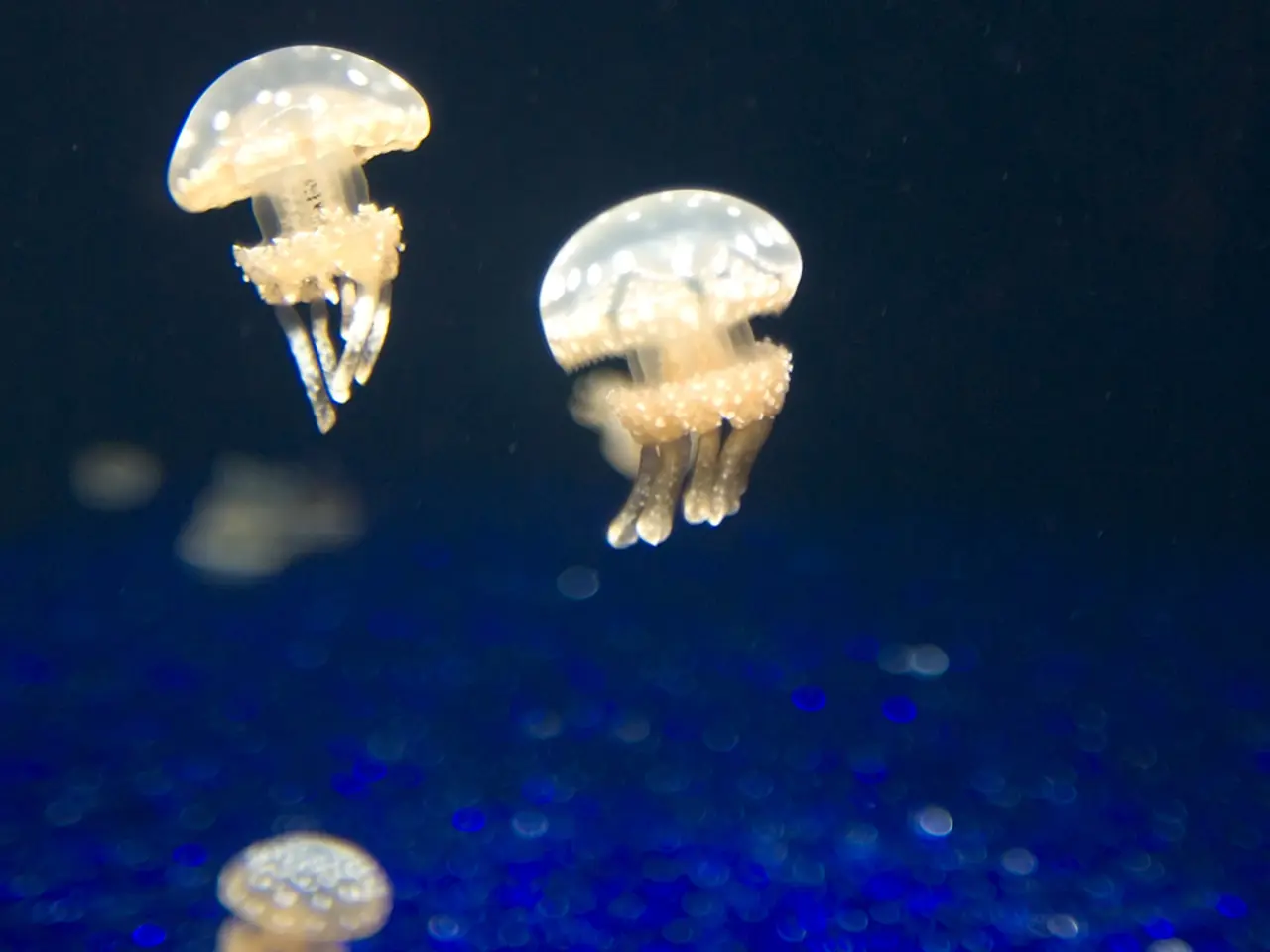Thousands of jellyfish infiltrate Gravelines' nuclear power station
The Gravelines nuclear power plant, Europe's largest in the West, has been paralysed since August 11th, 2025. This unexpected shutdown is due to a real jellyfish invasion, specifically the Rhizostoma octopus species, which have infiltrated the filtering drums of the pumping stations used to capture cooling water for the power plant.
The jellyfish, large enough to completely block the reactor's filtering system, resemble large cauliflowers and can grow up to 30 to 60 centimeters in diameter. This massive and unpredictable swarm has caused significant issues with the reactor's cooling system, forcing an unexpected shutdown of four of its six reactors.
The proliferation of jellyfish at the Gravelines site is apparently linked to climate change. Warmer sea temperatures, expanding suitable habitats for jellyfish like the invasive Asian Moon jellyfish, and calm, nutrient-rich waters, such as the cooling canal connected to the North Sea, create ideal conditions for jellyfish populations to explode. Additionally, agricultural runoff contributing to low-oxygen dead zones further promotes jellyfish blooms.
Climate change exposes the Gravelines nuclear power plant site to a "flood risk" according to activists. On October 28th, Greenpeace sent kites shaped like jellyfish to protest the construction of two EPR reactors at the Gravelines nuclear power plant. The link to climate change is that global warming warms ocean waters, enhancing jellyfish spawning success and creating more hospitable environments for these aquatic creatures.
The Gravelines nuclear power plant, located in the Nord region of France, is already equipped with six "units" of 900 MW. The jellyfish invasion at the Gravelines nuclear power plant has resulted in the complete blocking of the reactor's filtering system, highlighting an emerging challenge for coastal nuclear facilities. The reactor's filtering system, designed to prevent marine organisms from entering the reactor's cooling system, was not able to prevent the entry of the Rhizostoma octopus jellyfish.
As the world grapples with the effects of climate change, the jellyfish invasion at the Gravelines nuclear power plant serves as a stark reminder of the unforeseen consequences that warmer ocean temperatures and changing ecosystems can have on industrial operations. The situation mirrors other nuclear plants around the world that have faced similar disruptions due to jellyfish.
Read also:
- Is it advisable to utilize your personal health insurance in a publicly-funded medical facility?
- Can the flu vaccine prevent stomach issues mistaken for the flu? Facts about flu shots revealed.
- Acid Reflux Management with Slippery Elm: Essential Information
- Foods to avoid for someone with interstitial cystitis include acidic foods like citrus fruits, spicy foods, artificial sweeteners, caffeine, alcohol, and fast foods high in sodium and preservatives.




